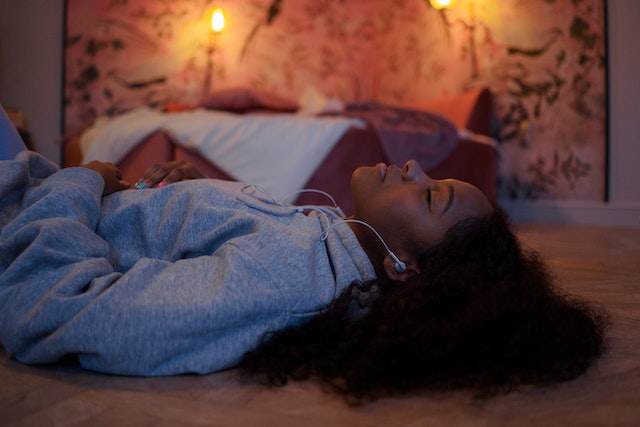11 ways to find direction in your 20s and beyond–Part 2
When you hit your 20s, especially after you finish college, a stint in the military, missionary work, or another similarly formative experience, you might find that now that you’re on your own in every sense of the word, you have no idea where to start or what to do.
You might feel a little….lost.
I was a missionary for four years after college, which was a wonderful experience that utterly changed my life. But that also meant that I didn’t really have to figure out adulting until 26, after many of my peers had already gotten it together years before me. <insert sweaty emoji>
Then it felt like I spent the next few years figuring out how to find direction—you know, after surviving a 40+-hour work week and somehow still making time for fitness, a social life, and laundry.
Last week, we talked about four ways to find direction in your 20s that touched on your physical life—budgeting, meal planning, movement, and bedtime routines.
This week, we’re moving into the mental/emotional category.
1. Learn how to budget
When you budget, you give yourself boundaries about how and where you will spend your money.
There are a lot of budgeting tools out there, so I recommend that you pick one that works for you. I created one you can use if you like the paper route.
2. Reap the benefits of meal planning
Meal planning helps you make healthier choices and spend less on eating out or groceries.
Meal planning is also great because you don’t have to cook every meal in a week. You can plan which meals you want to eat out or order in for.
If you want to take your meal planning to the next level, I recommend using my method for grocery list organization: a quadrant-style grocery list! Get your grocery list template here (plus, 8 more templates to help you in other areas of your life!).
3. Work some movement into your life
As my physical therapist says, “If you don’t use it, you lose it.” And I see the truth of that with my aging family members.
Even a simple daily walk will help you clear your head and keep your body fit as you age. I know “aging” feels forever away. God willing, it is. But trust me, when you’re 75 and still mobile, you’ll thank me.
Click here to snag a free weekly movement plan right now.
4. Find a bedtime that works for you and stick to it
Okay, in full transparency, this one is both physical and emotional.
Getting enough sleep is 1000% crucial for your physical and mental health.
So turn your AC down, buy a fan, set an alarm to remind you to brush your teeth, and go to bed on time.
5. Create margin in your life
One of the best things I do for my mental health is to say no to certain activities. By saying no, I give myself time to rest, recuperate, and enjoy the life I’m working so hard to build.
Don’t get me wrong, though—this is one of the hardest things I do for myself as well. I’m a natural people-pleaser and naturally social. I’m happy and content to spend time with friends and family, so it’s often not until I’m exhausted and grumpy that I realize that I haven’t given myself enough alone time or enough time to rest.

It’s better for all of us if I plan my margin ahead of time. I do this by designating certain nights of the week where I am unavailable for social activities. Of course, it can change from week to week depending on any special events or days on the calendar.
At the end of the day, when you create margin, you are telling yourself and the world: “My needs are valid. My needs matter, too. And I will tend to my needs so that I have enough energy and joy to give away when others need the best of me.”
“My needs are valid. My needs matter, too. And I will tend to my needs so that I have enough energy and joy to give away when others need the best of me.”

6. Embark on self-discovery
I can’t tell you how long it took me to not only realize that I was an introvert but also what being an introvert meant for my daily life. I tried for years to fit into an extroverted world, but always felt out of place, tired, angry, and defeated. It wasn’t until I read a book called Introvert Power when I was 25 that I finally understood that my introversion is a gift. I stopped trying to fix myself or change myself—I accepted who I was, how God had made me, and rejoiced that I had finally realized that loud bars or parties were not where I was most likely to thrive.
One reason it took so long for me to arrive at this personal aha moment was because as a missionary, I had spent three years hearing the mantra “get comfortable with being uncomfortable,” or said another way, “get comfortable outside your comfort zone.” To a certain degree, being comfortable with being uncomfortable is a good attitude for life. There are so many things we will never get to experience if we refuse to push past our comfort zones. But permanently living outside your comfort zone might also mean that you never have the chance to learn who you are and rejoice in the person God made you to be. (News flash: God did not make you to be anyone else!)
The paradox of self-discovery is that it’s a gift that you give yourself, and at the same time, the better you know yourself, the more you can give to the world. You’ll learn what you like and don’t like, but you’ll also realize where you have some blind spots, and ways you can grow.
Some of my favorite assessments that have helped me grow in self-awareness the most include:
- Myers-Briggs Type Indicator (MBTI or simply “Myers-Briggs”) – 16 personality types made up of different combinations of introvert/extrovert, sensing/intuition, thinking/feeling, and judging/perceiving. The MBTI is very common, and this is a great place to start so you can learn the basics about your personality and how you operate in the world.
- The Enneagram – this tool is particularly useful because it helps you know not only what you’re likely to do, but why you do those things. Each type has particular virtues, vices, and motivations. On the outside, some types look the same as others but have different motivations. The Enneagram has helped me learn so much about myself in recent years. I know what I’m great at and I have a better understanding of ways I can grow.
- CliftonStrengths (formerly “StrengthsFinder”) – this one is another favorite because it helps you identify your top five strengths. When you know what you’re naturally gifted in, it can be easier to find jobs that suit you best, ways you can give back that will fulfill you the most, and more.
Self-discovery is not selfish. God made you just as you are, and you are thoroughly unrepeatable and unique! Self-discovery allows you to understand yourself better and the treasure trove of goodness that God placed within yourself.
Self-discovery is not selfish.
7. Go to therapy.
Sometimes, our life experiences cause us to learn coping mechanisms or thought patterns that might protect us in the moment but don’t serve us for the long-term. Working with a therapist can set you up for success for the rest of your life. I believe it’s beneficial for everyone to try therapy, even if you don’t feel like you have unresolved grief, trauma, or other potential stumbling blocks.

Commit to it for only three to six months. You’ll be surprised what you gain from it. In the past, therapy has taught me tools like CBT (cognitive behavioral therapy) to help me challenge negative thought patterns, and how to process feelings through journaling, art, etc.
I’ve said from the beginning that the road to greatness includes healing so that we are free to accept what God has in store for us. If you’ve been considering therapy, let this be your invitation to take one step in that direction.

8. Plan fun things to do!
When you’re getting disciplined with your budget, your meal plans and your grocery lists, your free time, and going to therapy, you might find that you’re having less fun than you used to. You’ve reached a crucial juncture: in order to avoid burnout, it’s time to bring fun back into your life. When you plan fun into your life, you give yourself a break from the hustle and strife of hard work. You’ll receive many gifts when you remember to play.
I like to make candles, bake, color, read paint, and play games with my family. When I can, I like to travel. I like to go to food festivals, go for walks on different park trails in my town, and sometimes, I like to just lay in my bed and watch Parks & Rec or The Crown. Any number of activities can turn into play.
The trick is to plan for “big” fun and have a flexible attitude for “little” fun. Planning a trip to a tropical resort is great fun—and requires great planning and budgeting. Take trips like this, but make sure they work for you and are within your budget. But remember this: your fun is no less worthwhile if it exists on a smaller scale.
Smaller fun allows you to have a flexible approach. Create a budget for smaller fun each month—dinner out with friends, supplies for your favorite hobbies, and other activities you enjoy. Just because you’re out here working on yourself, furthering your career goals, and building boundaries into your life doesn’t mean you can’t have fun!
Next time, we’re turning to pinnacle of finding direction: your spiritual life. Until then, what would you add to the list we have so far?





Wow, Carrie, this is good for any age! And the wonderful thing is? It’s never too late to start. Also, the connection to the links of Strengthfinders, etc. are all great. I didn’t have access to these self-awareness resources back in the day and think they are especially helpful as we work with others. Thank you for the good work you are doing here!
Deb
Deb! Thank you so much for your kind words. I agree, these are actions people can take no matter their age or stage. It’s never too late to start!
Wow, these are fabulous tips for ANY age. Well done!
Thank you so much, Elizabeth!